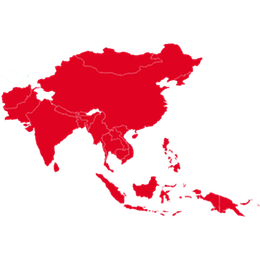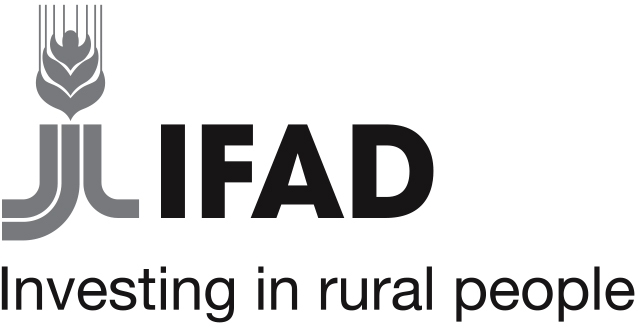A cellphone-based information hub for pastoralists in Gujarat
"Using low-cost mobile technology to route valuable information."
BACKGROUND
Although cellphone uptake is high among pastoralists in Gujarat, there is a fragmented communication system and a lack of empowerment, especially in the context of challenges like urbanization. The M4M project uses low-cost mobile technology to route valuable information to pastoralists, helping improve their livelihoods.
WHAT’S INVOLVED
Access to markets
The information hub provides insights that help pastoralists to put the value of their produce in context with the wider market and negotiate better prices, rather than relying on the knowledge of middlemen.
Poverty alleviation
Meteorological updates help pastoralists to plan ahead and mitigate risk, while value chain information and increased awareness of their rights and the opportunities available helps them boost their income prospects in the longer term.
EXPLORE THIS SOLUTION
The M4M project can offer
- A proven process for developing and rolling out targeted information messages, both on a helpline and broadcast basis
- Experience marketing and promoting a new service with the input and engagement of its target community

Countries involved
India
Project partners
IFAD, Maldhari Rural Action Group (MARAG)
Project dates
October 2013 – December 2015
Share this solution
Bookmark this solution
BookmarkShow Full Solution
Summary
India’s booming ICT trend provided an opportunity to use low-cost mobile technologies to create an information hub in Gujarat, where there is high uptake of mobile phones among pastoralists. The M4M (Mobiles for Mobility) project was set up to improve access to information and strengthen pastoral livelihoods in 3 districts of Gujarat; Surendranagar, Kutch and Patan through a mobile-based information service and helpline.
The overall objective of project is improving poor rural people's access to economic and social resources and empowering women and other disadvantaged groups.
Challenge
Although there are an estimated one million pastoralist families in Gujarat, the communication systems used by pastoralists remain fragmented and informal due to lack of awareness of ICT. Young people are mobile savvy, but few own smartphones.
There are many other challenges for Gujarati pastoralists;
-
Pastoralist communities are often socially and politically marginalized, and exist in a changing social and ecological landscape.
-
Access to common rangelands, upon which their livelihoods depend, is being restricted by new developments (urbanization) and expanded agricultural production.
-
Greater awareness of their rights can initially result in great agitation and conflict as pastoralists demand that these rights are upheld, resulting in elevated levels of complaints.
-
Many of the markets for pastoralist products, such as mawa, ghee, meat and wool are not organized. As a result middlemen take maximum advantage.
-
There are less formalized supply chains for sheep, goat and camel milk.
Solution
The Maldhari Kiosk is an information hub that provides services targeted towards pastoralists through voice messages and a helpline.
Voice messages are sent out to registered numbers providing:
-
key market information (focused on prices and points of sale to empower pastoralists to be able to sell their products at fair market prices)
-
meteorological services (weather warning for migratory pastoralists)
-
health and safety advisory (notifications of new best practices on animal and human health issues as well as warnings of health risks).
Through the helpline, pastoralists can request information about rights and legal issues, technical issues, value added products, indigenous knowledge, government programmes and social support networks.
Maldhari Rural Action Group (MARAG) works in collaboration with a Technical Service Provider (TSP) to manage the toll-free helpline and with PCl - Media Impact to support training of staff and developing communication messages. TSP is also responsible for setting up the hardware for the Maldhari Kiosk, for providing software, for maintaining the database of the users, and for training the MARAG team.
In setting up the project, the key tasks were:
-
An initial scoping study undertaken by consultants to identify the state of the art, assess needs and identify strategies
-
Recruitment of a project coordinator to help design, implement, and supervise the project. Central to the design was a participatory consultation with relevant stakeholders and an emphasis on engaging women and youth.
-
Developing partnerships with Korean Private Sector and local ICT companies.
-
Training the project team in effective communication strategies which were applied to the development of voice and text messages.
-
The launch of helpline services in the three districts in Gujarat by the end of year 1, and the development of an implementation, monitoring and evaluation strategy.
-
Distributing 800 cellphones to pastoralists through an innovative partnership with private sector. Along with the handset, the recipients were given an illustrated guide (train-the-trainer model).
-
Marketing and advertising - the launch of the Maldhari Kiosk was advertised through local TV, radio and newspapers. Pastoralist groups were involved in marketing and advertising. Youth groups were trained on how to disseminate information, use the service and the existing database.
Results
Through the Maldhari Kiosk’s voice messages and helpline services, 15,000 pastoralist households accessed market Information, meteorological services, health and safety advisories and directory services. As well as addressing the beneficiaries’ needs with reliable, accessible and targeted information, the project has:
-
Addressed alienation through increased access to markets and weather by mobile and rural pastoralists, helping to fight rural poverty
-
Increased income as risks are mitigated through early warning alerts
-
Increased access to information about financial services and value chains
-
Strengthened the capacity, resilience and knowledge management system of pastoralists across Gujarat.
-
Increased advisory services: legal, knowledge bank, technical experts, value-added products, indigenous knowledge and rights and directory services, including government programmes and social support networks
-
Strengthened knowledge-management through the production of documents published on the IFAD Asia portal, the MARAG website and where appropriate, printed and distributed through additional networks.
Lessons learned and potential for replication
-
M4M projects should incorporate the best practices like focus on content, consultation, community champions. on-going training at all levels, strong facilitators, smart partnerships and sustainability planning.
-
Engaging the youth and community leaders through a strategic approach using a train-the-trainer model would be a viable, empowering and sustainable strategy for project roll-out.
-
Having the right information at the right time will allow pastoralists to make better informed decisions and thereby strengthen their livelihoods.
-
It is important to recognize the value of consultation and ensure that the input from communities is reflected in the project.
Next steps
-
Developing longer-term sustainability plans that reflect the culture and realities of the community.
-
More research is needed into payment options for the helpline (e.g., cost to call versus toll-free).
Solution Image
Solution Additional Resources
Global Fathering of Women Pastoralists M4M Project Asia MARAG Annual Report 2010-2015 News on Pastoralist Women's GatheringLast update: 09/08/2018

